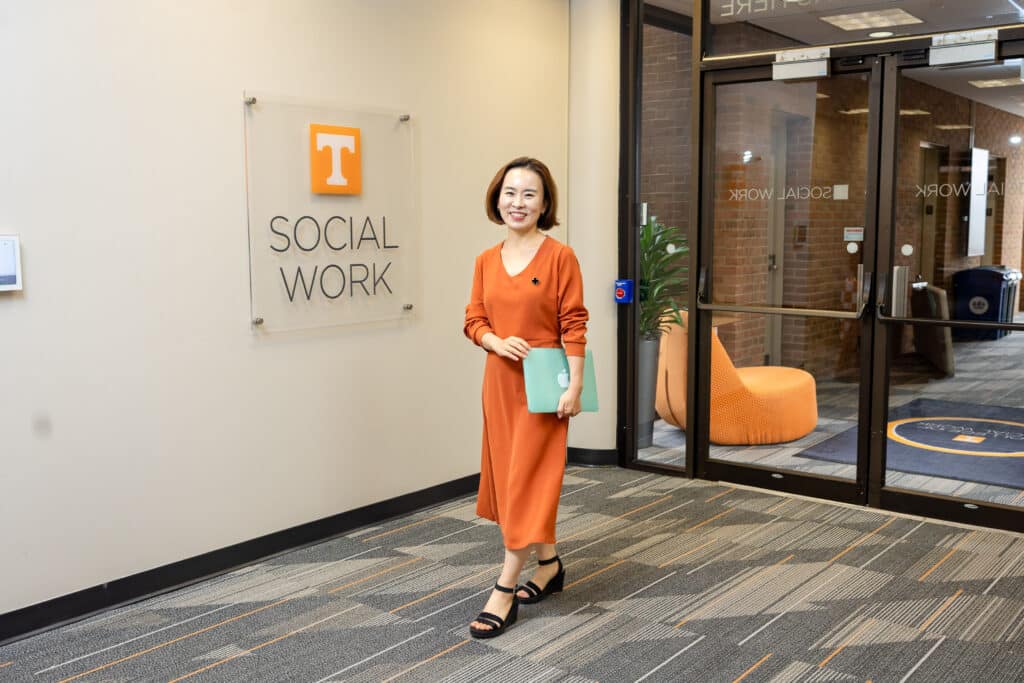
PhD student Sangmi Kim has been selected for the CSWE Doctoral Student Policy Fellowship. The goal of this national fellowship through the CSWE is to develop a cohort of doctoral-level social workers who influence social policy through the federal legislative policy process.
“I am thrilled to begin the CSWE Doctoral Student Policy Fellowship,” Kim stated. “This will be an amazing opportunity, and I appreciate the guidance, support, and encouragement from the leaders at the college. I will proudly represent the UTCSW throughout this exciting endeavor.”
The two-year fellowship will offer opportunities for experiential learning through placements in congressional offices, with CSWE government relations at Lewis-Burke, or other federal agencies and advocacy groups. Placements will center on connecting fellows’ research interests to policy and informing policymakers on how the social work profession can play a key role in shaping federal policy. Fellows will work and learn alongside legislative and advocacy professionals on issues of social work and social justice, learn to link the academic research with legislative policies, and develop easy-to-read advocacy materials and policy briefs. The fellowship seeks to cultivate a cadre of social work researchers who can both advocate for investments in social work and adjacent social policy and disseminate this information among their communities of practice.
Kim, a PhD student in Social Work at the UTCSW, holds a Master of Social Work from Ewha Womans University, accredited by the CSWE, and obtained South Korea’s highest-level social work certification in 2013. Her experience includes providing mental health support at a social welfare center and contributing to Korea-Japan child welfare research at the Korean Institute for Health and Social Affairs. She has also studied extreme social isolation in Japan, focusing on NEET (Not in Education, Employment, or Training) and Hikikomori (acute social withdrawal) populations.
Her research explores the impact of digital environments on youth and young adult resilience, particularly in suicide prevention, cyberbullying, and autism spectrum disorder (ASD). Using machine learning and advanced statistical modeling, she develops suicide risk prediction models and analyzes factors such as physical activity, screen time, and cyberbullying to inform intervention strategies. Integrating a data justice perspective, Kim examines algorithmic bias and data accessibility to ensure AI models fairly represent immigrant and minority youth. Her work investigates how digital environments shape mental health outcomes and how data-driven policymaking and ethical AI systems can improve mental health services, leading to equitable suicide prevention policies.
Her selection for this fellowship underscores her commitment to academia and policymaking. She advocates for evidence-based solutions that promote social well-being and foster equitable policy development.
